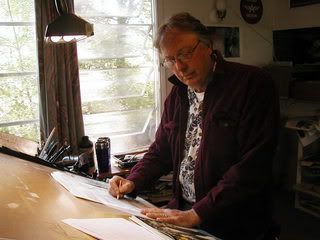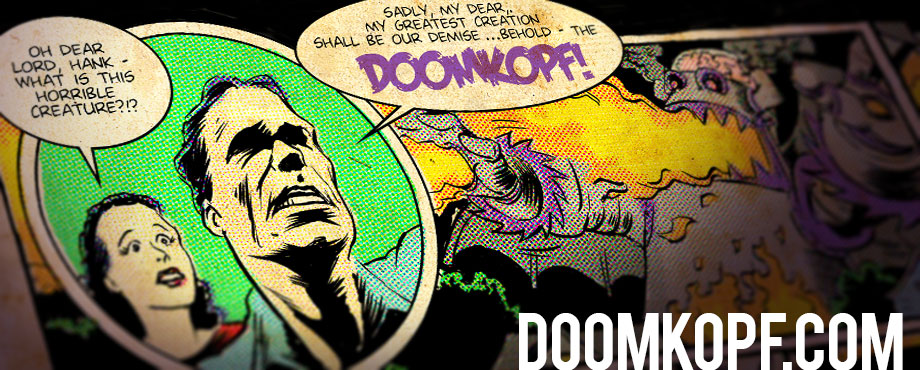More fun with Rick Veitch
If you enjoyed my earlier interview with Rick Veitch or the accompanying preview of his new book Army@Love, you’ll definitely enjoy this little bit of bonus material.
 First, Rick just sent a note saying Army@Love now has a web site with some bonuses (particularly there are some cool character sketches and bios). You can find it right here. And, for the real meat of the bonus feature, I also found an old interview that I did with Rick when his last book came out, that being Can’t Get No (which is a book you NEED to read). The interview never made it onto our site, until now…
First, Rick just sent a note saying Army@Love now has a web site with some bonuses (particularly there are some cool character sketches and bios). You can find it right here. And, for the real meat of the bonus feature, I also found an old interview that I did with Rick when his last book came out, that being Can’t Get No (which is a book you NEED to read). The interview never made it onto our site, until now…
Jean-Claude Van Doom: We’re now five years away from Sept. 11. There are movies coming out about the attacks, books, even another comic. Where does Can’t Get No fit into that group? Were you conscious of the other creative efforts on the attacks? Did that influence the book?
Rick Veitch: I’m not big into popular media, but nothing I’ve seen in the five years since the attack has really risen much above mawkishness and jingoism. When I talk to real people its obvious that there has been a profound emotional and intellectual change caused by the events of 9/11. But nowhere in the national discourse is that being explored in a meaningful way. With CAN’T GET NO, I wanted to use poetry and imagery to get at that psychic wound; to unlock its cage and let it out so that we might begin to come to grips with the real impact of that awful tragedy.
JCVD: The writing, clearly, is what sets Can’t Get No apart. It’s almost dizzying to read. Did you just sit down and let it flow out, stream of conscious-style? Did you go back over the lines/lyrics, tweaking them in places to get across just the right message? Did you have the general plot all figured out first?
RV: In my original proposal to Karen Berger at Vertigo, I had the plot of the first third in detail and I had the ending. The middle of the book was left wide open. I knew it was going to be a journey, a road trip if you will, for the character of Chad Roe as well as myself and my readers. While I was doing that creamy center, I actively tried to make each page as strange as I could; twisting and turning the plot and filling the imagery with the kind of portents you might find in dreams and nightmares while still remaining in the realm of real world possibility.
The captions I worked and reworked continuously over the two and a half years I spent on the novel. Most comic book writing is designed to resonate with the graphics; but my goal was to create something more plastic and explosive. I want the reader to bring a piece of themselves to the book.
JCVD: The obvious message one could take from Can’t Get No is that Sept. 11 changed us (America/Americans) profoundly, changed our lives, threw us into chaos, etc. But at the end of the book, we see Chad settle back into his comfortable American life, and it seemed open to interpretation whether his great adventure into delirium really affected his life at all. Is one of those the correct interpretation? Or am I missing the boat?
RV: Interestingly enough, I’ve heard a number of different interpretations of the ending, which I guess fits in with what I said above about the reader bringing part of themselves into the book. For myself, I was trying to make the point that Americans have tried to ignore the real meaning of 9/11; to bury it and go back to their pre-attack lives as if the whole event never happened. I want them to be angry at Chad Roe at the end.
JCVD: For my own curiosity, who is the old man sitting in the shadowy room at the beginning and end?
RV: It’s a print on the wall of a Rembrandt etching. I believe it is titled “The Alchemist.”
